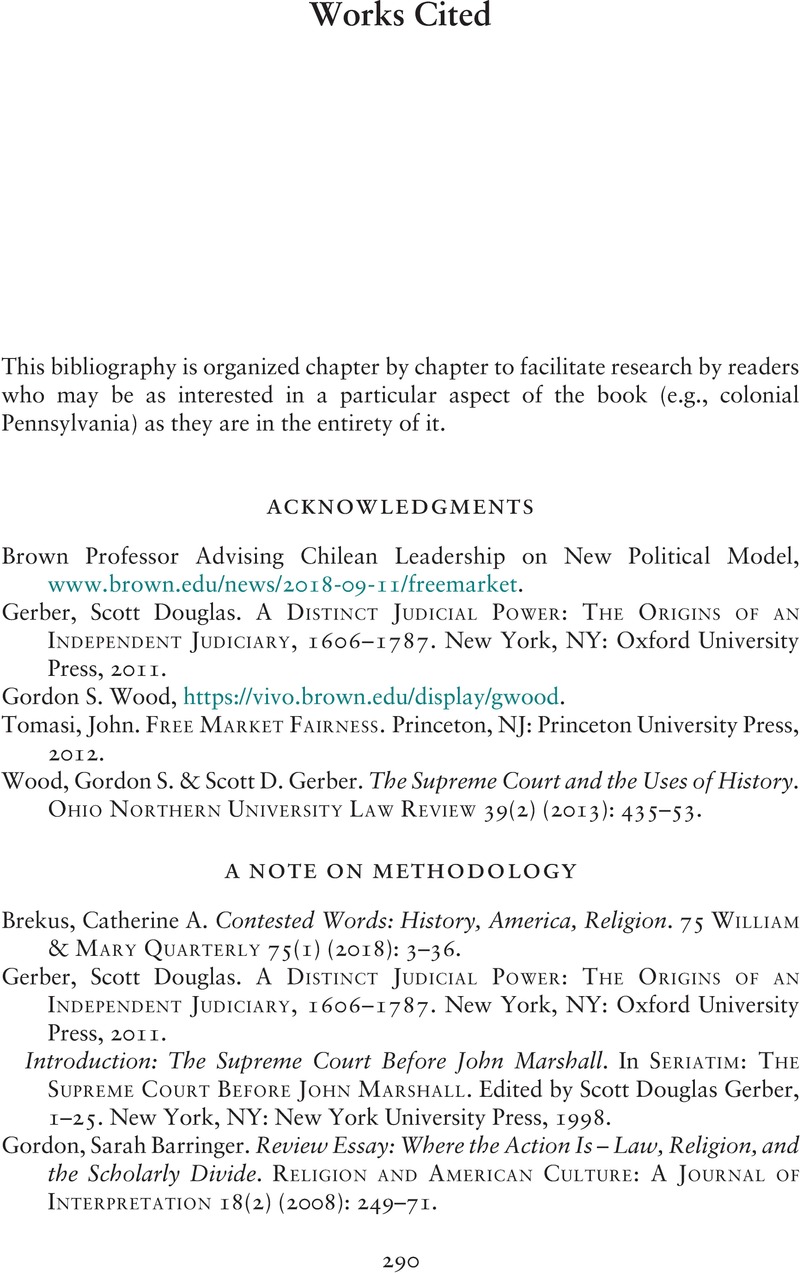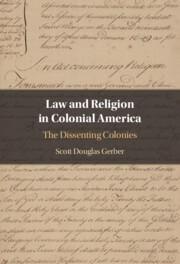Book contents
- Law and Religion in Colonial America
- Also by Scott Douglas Gerber
- Law and Religion in Colonial America
- Copyright page
- Dedication
- Epigraph
- Contents
- Tables
- Acknowledgments
- A Note on Methodology
- Introduction English Law about Religious Toleration Prior to the Planting of Colonial America
- 1 Law and Catholicism in Colonial Maryland
- 2 Law and the Lively Experiment in Colonial Rhode Island
- 3 Law and the Holy Experiment in Colonial Pennsylvania
- 4 Law and Congregationalism in Colonial Connecticut
- 5 Law and a City Upon a Hill in Colonial Massachusetts
- Conclusion Law, Religion, and Historiography in Colonial America
- Works Cited
- Table of Laws
- Index
- References
Works Cited
Published online by Cambridge University Press: 19 October 2023
- Law and Religion in Colonial America
- Also by Scott Douglas Gerber
- Law and Religion in Colonial America
- Copyright page
- Dedication
- Epigraph
- Contents
- Tables
- Acknowledgments
- A Note on Methodology
- Introduction English Law about Religious Toleration Prior to the Planting of Colonial America
- 1 Law and Catholicism in Colonial Maryland
- 2 Law and the Lively Experiment in Colonial Rhode Island
- 3 Law and the Holy Experiment in Colonial Pennsylvania
- 4 Law and Congregationalism in Colonial Connecticut
- 5 Law and a City Upon a Hill in Colonial Massachusetts
- Conclusion Law, Religion, and Historiography in Colonial America
- Works Cited
- Table of Laws
- Index
- References
Summary

- Type
- Chapter
- Information
- Law and Religion in Colonial AmericaThe Dissenting Colonies, pp. 290 - 322Publisher: Cambridge University PressPrint publication year: 2023

